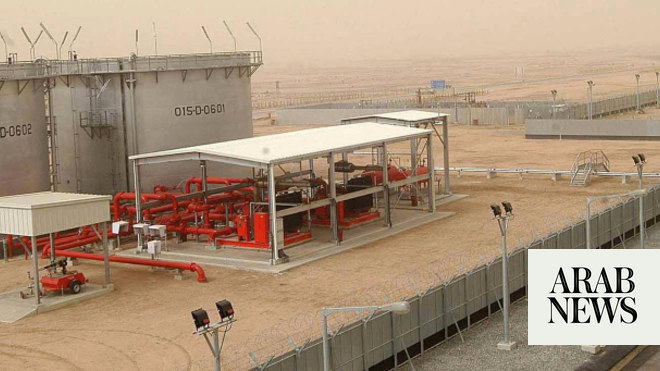
All six GCC states agreed last year to introduce VAT by 2018
Only UAE and Saudi Arabia have introduce the 5 percent levy
LONDON: Kuwait has postponed plans to introduce value-added tax (VAT) to 2021, as rising oil revenues ease pressure on the country’s economy.
However the country’s parliamentary budget committee said it would push ahead with plans to tax certain products such as tobacco, energy drinks and soft drinks, according to a government statement on Tuesday.
“The committee noted that the value-added tax will be delayed in Kuwait until 2021, and that the Ministry of Finance considered the need to speed up excise tax on selected commodities such as tobacco, soft drinks and soft drinks,” according to the budget committee statement, published on 15 May, said.
The new excise tax is expected to boost treasury revenues by 200 million dinars ($662.6 million), as well as aiming to improve the health of Kuwaitis by reducing the consumption of cigarettes and sugary drinks, the committee’s statement said, without providing a timeline for the implementation of the new levy.
The UAE and Saudi Arabia have both already introduced the five percent VAT at the start of this year in an effort to boost government revenues that have been under pressure from low oil prices.
While all six GCC states originally agreed to bring in the tax in 2018, commitment to the tax has flagged.
Oman, Qatar and Bahrain are expected to introduce VAT by next year, although no specific date has been given yet.
The delay in Kuwait’s VAT plans was widely expected, according to analysts, given domestic political resistance to the tax, and the relative strength of the country’s finances compared with neighboring states.
The price of oil is now on the rise thanks to increasing global demand and the Opec-led deal that came into force last year. Oil prices briefly rose above $79 a barrel on Tuesday, making the prospect of introducing a new levy in a country unused to taxation is even less appealing.
“The combination of Kuwait having among the lowest fiscal and external breakevens in the region, and the vast sovereign assets of the Kuwait Investment Authority have always reduced the urgency for the government to introduce new revenue-raising measures compared to other sovereigns in the region such as Saudi Arabia and Oman,” said Thaddeus Best, analyst at Moody’s Investors Service.
“The recent rise in oil prices has also likely further sapped reform momentum,” he told Arab News.
Kuwait’s state budget for the fiscal year ending March 31, 2019 forecasts 15 billion dinars in revenue, based on an average price of oil at just $50 per barrel. Oil has traded above the $50 a barrel mark since July 2017.
The delay in introducing VAT will not have an immediate impact on government revenues, or any material impact on their sovereign rating for the country, according to Zahabia Gupta, associate, sovereign and international public finance ratings, at rating agency S&P Global.
“As the government relies on hydrocarbon receipts for around 90 percent of its revenue, we expect higher oil prices will likely offset the potential loss in revenue from delaying the implementation of VAT,” she said.
Concerns about the oil price persist, with Kuwait’s fiscal and external positions remaining vulnerable to swings in oil prices, she said.
But such risks are “balanced by Kuwait’s sizable fiscal and external buffers, which remain key rating strengths,” she said.
The IMF has urged Kuwait to keep progressing with plans to introduce both excise and VAT charges, as well as reduce government spending, in its Article 4 briefing published in January,.
However, Best said that even if implemented, VAT alone may not be enough to balance any long-term decline in oil prices.
“The relatively modest fiscal gains from the proposed revenue measures also need to be taken into account,” he said.
“For example, we estimate the additional revenue from VAT would be equivalent to around 1.6 percent of GDP assuming full compliance, which although higher than some of our estimates for other GCC sovereigns, is still ultimately less than the additional government revenues arising from a $5 increase in the price of a barrel of oil.”












